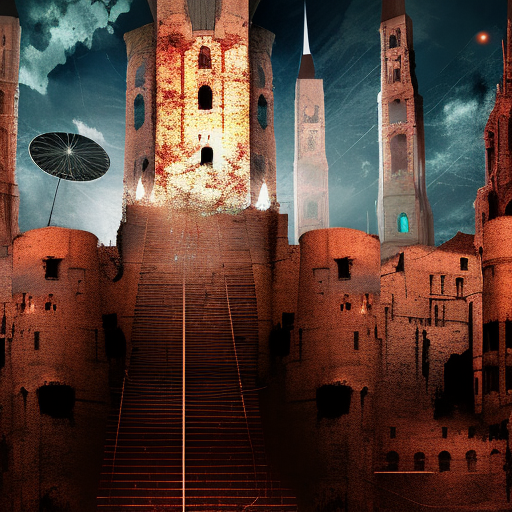The Castle: A Surreal Journey through Bureaucracy and Alienation
In Franz Kafka’s novel, “The Castle,” the protagonist, K., finds himself trapped in a nightmarish world of bureaucracy and alienation as he tries to gain access to a mysterious castle. Through K.’s frustrating and futile attempts to navigate the complex system, Kafka explores themes of powerlessness, identity, and the absurdity of human existence.
A Kafkaesque Nightmare: The Frustrations of Bureaucracy
“The Castle” is a haunting portrayal of the frustrations and absurdities of bureaucracy. K., a land surveyor, arrives in a small village with the intention of working for the castle authorities. However, he soon discovers that gaining access to the castle is an impossible task. He is met with a series of obstacles, including unhelpful officials, convoluted rules, and a lack of clear communication. K.’s attempts to understand and navigate the bureaucratic system become increasingly futile, highlighting the dehumanizing nature of bureaucracy and the powerlessness of the individual.
Alienation and Identity: The Search for Meaning
Throughout the novel, K. grapples with a deep sense of alienation and a search for meaning. As he tries to gain entry into the castle, he becomes increasingly isolated from the villagers, who view him with suspicion and gossip about his intentions. K.’s identity becomes intertwined with his quest for access to the castle, and he becomes consumed by his desire to prove himself and find his place in the world. However, the more he tries to assert his identity, the more elusive it becomes, leaving him feeling lost and disconnected.
The Absurdity of Human Existence: Surreal and Symbolic Elements
Kafka’s use of surreal and symbolic elements adds to the overall sense of absurdity in “The Castle.” The village itself is shrouded in a dreamlike atmosphere, with its winding streets, mysterious characters, and oppressive atmosphere. The castle, a symbol of power and authority, remains distant and unattainable, representing an unattainable goal or a higher power that is beyond human comprehension. The absurdity of K.’s situation is further emphasized by the illogical and nonsensical nature of the bureaucratic system he encounters.
- The novel explores the frustrations and absurdities of bureaucracy, highlighting the dehumanizing nature of such systems.
- Kafka delves into themes of alienation and the search for identity, as the protagonist grapples with a deep sense of disconnection from society.
- The use of surreal and symbolic elements adds to the overall sense of absurdity in the novel, emphasizing the futility of human existence.
“It is often safer to be in chains than to be free.”
“The Castle” is a thought-provoking and unsettling novel that delves into the complexities of human existence. Kafka’s exploration of bureaucracy, alienation, and the absurdity of life resonates with readers, inviting them to reflect on their own struggles and the systems that govern their lives. As K. continues his futile quest for access to the castle, readers are left with a profound sense of the powerlessness and absurdity that can permeate the human experience.












